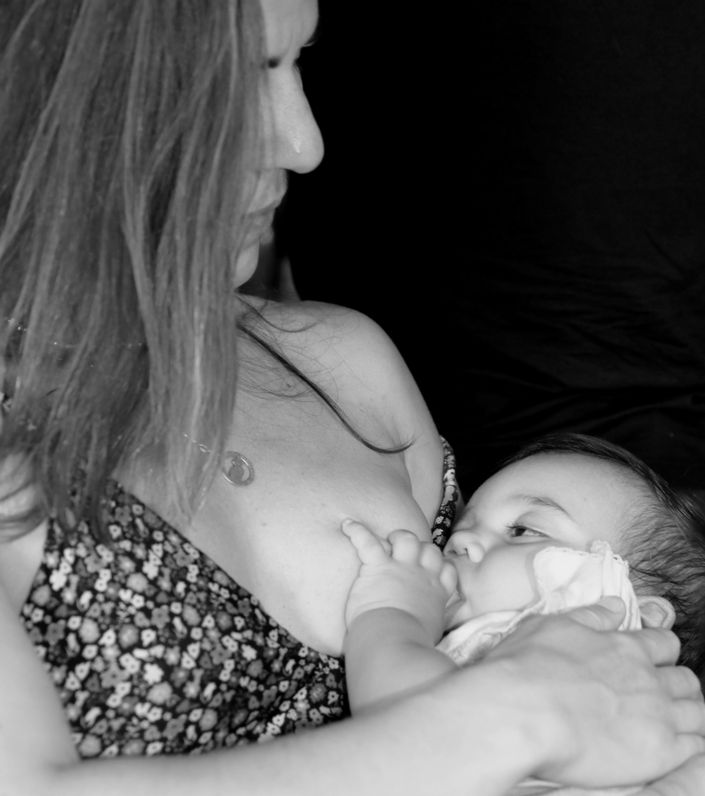
Natural Early Life Health - 2025 Term
This course will give you a foundation in Naturopathic and Functional Medicine as applied to Early Life Health, encompassing preconception, pregnancy, postpartum and infancy. There is a focus on seeking to respect, understand and protect biology and natural processes when appropriate, as well as to work gently and safely with clear boundaries and triage and referral guidelines.
On completion of this 14-week, two-part course practitioners will become a MRC Certified Natural Early Life Health practitioner, which will make them easily identifiable to families seeking natural medicine support aligned with this approach.
Please note that enrolments in this course are limited to those who have successfully completed the prerequisite MRC courses - either Naturopathic and Functional Medicine Approaches to Gastrointestinal Disorders or the Bridging Course to Advanced Microbiome Manipulation & Early Life courses. Enrolment is via direct application via email to helene@probioticadvisor.com
Week 1
Module 1: Breastfeeding Context
Learn about the many elements that influence breastfeeding success by following the story – of the common clinical presentation of perceived low milk supply that illustrates how these features (below) play out in clinical practice. This session covers:
- Functions of breastfeeding for mother and child.
- Health implications for mothers and infants when breastfeeding is sub-optimal.
- How breasts work - physiology of breastfeeding from establishment to galactopoiesis (maintenance of milk supply).
- Perceived and true low milk supply.
- How to assess infant intake.
- Supplementation considerations and risks – risk hierarchy from: mothers own milk, donor milk, formula and “home-made-formula”.
- Historical, cultural, and societal factors that undermine breastfeeding.
- Seen and unseen barriers to breastfeeding and the role of the natural medicine practitioner can play helping to dismantle these.
Week 2
Module 2 Breastfeeding and Maternal Nutrition
This session looks at nutritional support for the breastfeeding parent. The transfer of macro- and micronutrients into breastmilk is explored, including delineation between those that are influenced by maternal status and dietary intake and those that are regulated independently. Specific functions of nutrients for maternal health, fertility health, and infant health are explored. Key nutrients to take care of, dosage ranges, and optimal nutrient forms are highlighted.
Week 3
Module 3: Herbal Medicine, Drugs, Pollutants and Breastfeeding
This session explores the transfer of non-nutritional substances through breastmilk including botanical medicines, medications, and pollutants. Pragmatic risk:benefit assessment around medications and drugs are outlined. The potential for environmental contaminants to be in breastmilk and formula is explored, including nutritionally-focused risk reduction strategies.
Week 4
Module 5 Naturopathic Approaches to Common Breastfeeding Challenges and Presentations
Module 6 Naturopathic Approaches to Mastitis
This session focuses on the naturopathic approaches that can help address commonly-encountered breastfeeding challenges. A deeper look at the various potential causes of true low milk supply underpins individualised herbal support strategies and the nuances of using herbal galactagogues. The amazing breastmilk microbiome is discussed, including what its potential functions may be for the infant and for breast health.Modulating factors and potential therapeutic interventions are detailed. This leads onto delving into Mastitis - a common clinical presentation which can exist in various forms along a spectrum. Mastitis is commonly driven by milk stasis, amongst other drivers, but the breastmilk microbiome may modulate resilience and susceptibility. Other breastfeeding-related presentations are explored such as breast refusal, tandem feeding, differentials for nipple pain, and D-MER (dysphoric milk ejection reflex).
Week 5
Module 7: The Preconception and Pregnancy Microbiome
Module 8: The Breastmilk Microbiome and Glycobiome
We continue to explore the role of the microbiome in health, as we look mostly at maternal microbiome for preconception and pregnancy health and see how modulation may help to prevent some common concerns, including: fertility challenges, recurrent miscarriage, pre-term birth, gestational diabetes, pre-eclampsia, and small for gestational age. We will also look briefly at the male preconception gut microbiome in relation to male fertility. We will consider the gut, oral, and vaginal microbiome.
Week 6
Module 8: The Infant Microbiome
During this meaty module we will look at the sequential evolution of the infant microbiome and the key protector and perturbing influences. Questions relating to where the infant acquires their microbes from, sustainable maternal sharing from multiple sites, and environmental acquisition of human-adapted microbes will be explored. The potential health functions of the different stages of microbiome development will be outlined, as well as strategies to help protect and nurture these stages. The dynamic nature of the infant microbiome presents challenges for assessment and decision- making around microbiome-related interventions. Timing for testing, and follow-up testing, will be explored; in particular following microbiome-disturbing events. Risk and benefit considerations and clinical reasoning behind targeted microbiome-focused interventions will be explored.
We will look at strategies for nurturing the infant microbiomes’ healthful stages, optimising healthful microbe acquisition, and consider some of the cautions around probiotic prescribing in this population.
Week 7
Module 9: Discussions on Infant Microbiome Assessment and Infant Microbiome Case Studies
Dawn will share three different infant microbiome stories, all three having similar history of microbiome-disturbing events, yet the stool microbiome results for these three infants follow different patterns over time. The demonstrated resilience of the breastfed infant’s ecosystem (with follow-up testing) guides Dawn away from intervening in two of these cases, while in the third case, Dawn explains the clinical reasoning and shared decision-making process that brought her to intervene.
Part 2
Week 8
Module 10: Colic, Reflux, and Unsettled Infants Unpacked
Frequently, parents seek support for their unsettled infant and often they are labelled as having reflux or colic. This session unpacks these diagnostic labels in the context of normal infant physiology and explores the many explanations for unsettled behaviour in infants, including which more serious presentations to rule out. A range of gentle treatments are explored with a focus of treating through the breastfeeding parent where possible.
Week 9
Module 11: Allergy Development and Atopic Dermatitis
Eczema frequently appears for the first time between two and six months, although sometimes later. This is often considered the beginning of the atopic march. While excluding triggers is a common treatment approach, in this session we will consider management of eczema and other potential food sensitivities, while holding multiple goals in our focus, including: supporting infant and family wellbeing, promoting resolution of difficult symptoms, having a long-term aim of promoting tolerance to potential food allergens, and above all, ensuring safety for the infant.
Week 10
Module 12: Allergic proctocolitis and other allergy-mediated gastrointestinal presentations
Bonus resource – I can only eat five foods webinar on maternal exclusion diets
There are a range of gastrointestinal allergy presentations that can occur in infants - with allergic proctocolitis probably being one of the more common of these in the breastfed infant. Typically, the infant is thriving in this situation, but is presenting with frank blood in their stools, sometimes accompanied by mucous, which can be quite alarming for parents and practitioners. The nuances around managing this, with a combination of ruling out other causes, watch and wait, immune modulating treatments through the mother, and judicious maternal-diet manipulation are explored.This session will also cover naturopathic approaches to Food Protein Induced Enterocolitis Syndrome (FPIES), Eosinophilic Oesophagitis (EoE), and other gastrointestinal allergy presentations.
Week 11
Module 13: Introducing Complementary Foods
A journey into introducing solids, with consideration of timing for protecting the infant microbiome and optimisation of immune health. We’ll also cover promoting tolerance to potential food allergens, meeting nutritional needs (including avoiding displacing breastmilk), minimising choking risk, and promoting lifelong healthy eating as well as social enjoyment of shared meals.Some of the faulty assumptions that inform popular weaning food recommendations will be examined and debunked.
Week 12
Module 14: Constipation in infancy
With the commencement of solids, most infants will experience slow transit time and hard stools. Prevention and prompt management of this presentation is important to prevent protracted and persistent stool holding and constipation-related issues persisting into childhood and beyond. Typically, this can be managed with dietary manipulation and pacing/slowing down the volume of solids. Sometimes this is not enough, and intervention with lactulose (or other prebiotics used at laxative doses) needs to be implemented and maintained until a regular soft and easy stooling pattern is established durably. During this session, we will clearly outline an approach to prevent and treat infantile constipation.
Module 15: Naturopathic Support for Pre-term Infants
Preterm birth affects up to 10% of infants and, hence, as practitioners we will find ourselves working with the parents of pre-term infants. Supporting families to access practical support to help them establish milk supply, supply mothers’ own milk, access donor milk (if needed) and establish breastfeeding, clearly saves lives and promotes long-term health outcomes for infants and their families. Parents of preterm infants navigate many interventions, including direct nutritional supplementation to their infant and often protein fortification of their expressed breastmilk. While many of these infants do require iron supplementation directly, due to being born with insufficient stores, there may be scope for mothers to discuss maternal supplementation of some nutrients over direct supplementation, when there is a clear evidence base that supports breastmilk transfer. Each situation is different, and careful consideration and collaboration with the health team is important. Additionally, sometimes there is capacity to delay iron supplementation and utilise a different form with less microbiome-disrupting consequences (in consultation with the health team of course). Maintaining a focus on safety and not compromising health outcomes is important while these strategies are considered. Consideration of microbiome recovery is another avenue to explore in this population and many parents will seek our support in this.
Week 13
Module 16: Pregnancy Nutrition/Preconception Nutrition – Key nutrients to take care of
Module 17: Gestational Diabetes
Module 18: The Fourth Trimester and Perinatal Mental Health
Pregnancy nutrients are often important to have on our radar for families with toddlers, as they are frequently considering future pregnancies. This also brings us back to the beginning of this early-life period. We look also at the Fourth Trimester, including maternal peripartum mental health, as well as some revision/overview of the topics we have explored throughout the course and how they fit into fourth trimester support.
This last week we will also look at prevention and naturopathic management of gestational diabetes (and thyroid presentations during the peripartum period).
Week 14
Module 19: Case studies on infant gastrointestinal presentations
Your Instructor

Dawn has worked in the area of functional and naturopathic medicine in
perinatal and early life health for over twenty years. She is a
clinician, researcher, educator and clinical mentor in this area. She is
trained as a Naturopath and a Lactation Consultant and brings these two
fields together. Click
here for a full bio.
